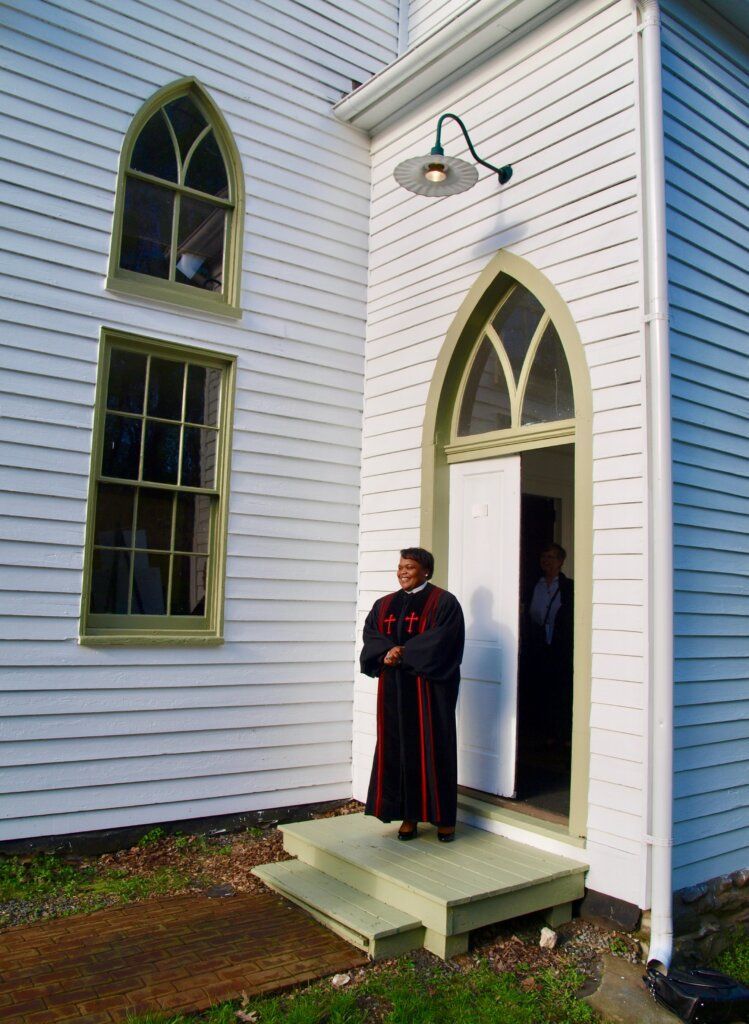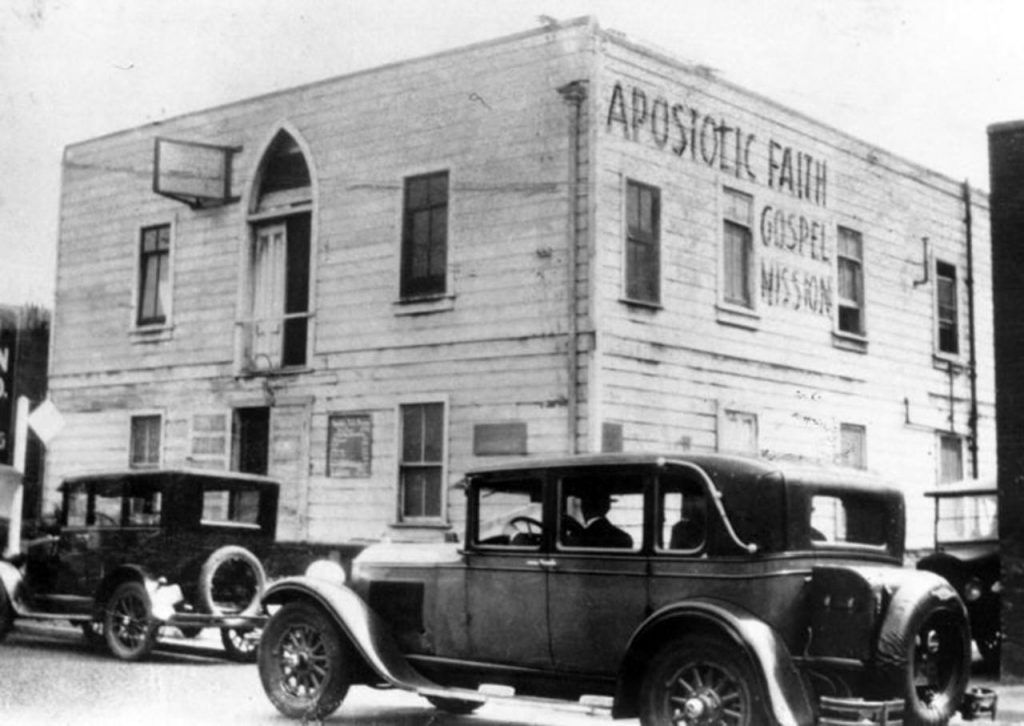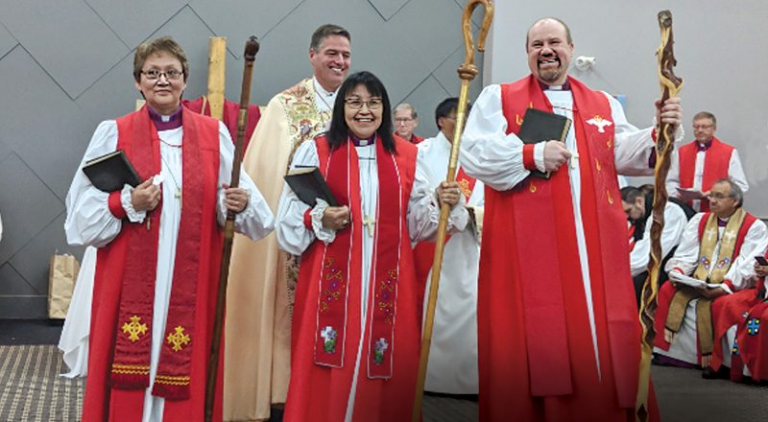Reformed Christians, Presbyterians and Fresh Expressions of Church
Editor’s Note
The Fresh Expressions movement is a Holy Spirit-led approach to cultivating new Christian communities. Inspired by the church of the Apostolic era, it is not limited to any one denomination or tradition, but is “ecclesially flexible.” In this series, Fresh Expressions and the Historical Streams of the Church, readers will hear from Fresh Expressions team members and missional leaders from different streams of the church who will share how this mission model brings out the best of their history, theology, and charism, and how it can bring new life to local congregations.
I had my vision checked today. Why? Because I have noticed myself squinting to make sense of what I am trying to see. Something needs to shift so that I can see more clearly and experience the world around me more robustly. I notice that our 21st century post-Christian culture is squinting to make sense of the Church of Jesus Christ, which is often seen less about good news and more about scandals and judgment.
What needs to shift so that a hope-starved world can experience the goodness of God? What needs to shift in how we operate as churches so that people see Jesus in our local congregations? How can the historic faith traditions, especially the Reformed Tradition in which I have spent much of my life, be a vehicle for people to see that the kingdom of God has come near?
We believe that fresh expressions of Church have the opportunity to shift blurred vision for a “squinting” world, and the Reformed Tradition can be richly expressed in these new forms of Church.
The Reformed Tradition
The Reformed tradition is marked by a deep sense of the glory of God. The Word of God in Scripture and the soaring creeds handed down through generations of saints shape this tradition and its deep reverence for the grandeur of God. In a world of shallow entertainment and dispensable relationships, the Reformed tradition wrestles deeply with what it means to be God’s covenant people.
Characterized as the “frozen chosen,” Presbyterians, a subset of the broader Reformed tradition, are often perceived to be heavily cerebral, set in their ways, and hung up on predestination. In practice, Presbyterians are intellectually curious, willing to roll up their sleeves and get involved in the needs of the world, and freed from the fear that they have somehow not done enough to earn their salvation. Life with God through Jesus Christ comes only by God’s grace and sets us free to live in grace.
In the Reformed tradition, deeply thoughtful and faithful people interpret Scripture differently, for “God alone is the Lord of the conscience” (Westminster Confession). Thus, within this tradition, there are conservative voices and progressive voices. At our best, this gets us out of our echo chambers, calling us out of the idolatry of our own religious preferences and into dialogue with different voices. And without a human authority (i.e. a bishop) to make determinations, Presbyterians know how to gather and discern communally about how to faithfully attend to God’s call to mission and ministry.
In a culture steeped in cynicism of institutional authority, endless echo chambers, hopelessness, and a deep sense of disconnect, the Reformed tradition has the opportunity to give people a view of a glorious, grace-filled, expansive, and inviting God in Jesus Christ through fresh expressions of Church.
Six Reformed Values Needed for Today’s Missionary Moment
Reformed and Always Reforming
Ecclesia semper reformanda est.
- Karl Barth
In 1517, Martin Luther was having to squint to see the grandeur and the grace of God obscured by all the trappings of what the church had become. Jesus had come proclaiming a new kingdom that was coming into view through his life and resurrection by the grace of God. The apostle Paul’s life was transformed by this power, sparking him to surrender a religious practice of rigid adherence to the law and to give himself over to the power of grace. Undeserved grace, Paul boldly proclaimed, is what the good news of Jesus is all about.
But over and over through history, God’s people drift away from this good news and into something else. Works righteousness. Religious power and influence. Indulgences. Hierarchy. And often, it is the people most invested in the current religious system that find the drift from good news hardest to see. Martin Luther nailed his protest onto the church doors, calling out for the corrections necessary for ordinary people to be able to see an extraordinary God.
According to the Reformed tradition, this was not a once-and-done event. The church must always be attentive to ways it is obscuring people’s view of good news. And be always willing to reform. Reformed…and always reforming.
There is so much room in our tradition for the church to be re-formed to more accurately portray the God made known through Jesus Christ. The joy of being “always reforming” is that we get to acknowledge the accumulated religious “stuff” that no longer serves the church or the community around it. We can engage in new forms of church that carry the best of the community of faith with it, thoughtfully discarding those non-essentials that no longer serve the mission and no longer center people in a robust life with Jesus and with others.
The Sovereignty of God
There is within the human mind and by natural instinct an awareness of divinity.
- Calvin, Institutes of the Christian Religion, I.iii.1
We live in a culture chock full of information, all of it at our fingertips 24/7, yet desperately longing for meaningful connection and the “something more” that we keep elusively grasping for. “There’s got to be more to life than this,” we hear people say. That longing, our tradition responds, is pointing us to the unfathomable reality that the God of the universe knows us and loves us.
The Reformed tradition proclaims that in every moment, we are in the presence of the living God. We are never beyond God’s reach and we are never beyond God’s grace. And that’s good news! Unfortunately, in our North American context, many people’s experience of the church writ large is not a view of the glory of God but of constant judgment by God’s people. Fresh expressions of church may be our best opportunity to give a post-Christian culture a view of a God who is FOR them, not against them, an opportunity to shift this skewed view of God to one that more clearly reflects the glory of God and the joy of God’s grace.
The Language of the People
All that matters is that God’s Word be given free course to encourage and enliven hearts so that they do not become burdened.
- Martin Luther
In the Reformed tradition, Scripture is the Spirit’s instrument for “calling, conversion, equipping, and sending of saints into the world as Christ’s Witnesses.” (Guder, Darrell, Called to Witness: Doing Missional Theology, 2015, Eerdmans, pg. 103). In the early church, the stories of Jesus were shared around tables and the heart of the gospel was shared among communities through relationships and letters. These were gathered into written form, but by the 1500’s the Church had cordoned them off for the educated priestly class to safeguard and mediate in a language unfamiliar to ordinary people. The Reformation was about stripping that disconnect away and reconnecting God’s Word with ordinary people in a language that could be understood, giving renewed spiritual vitality to the everyday people of God.
Today, the common vernacular is not just about a modern written translation of the Bible. It’s the embodiment of the teachings and good news of Scripture in forms that can actually be encountered as good news. It’s how the Spirit calls God’s people into a wild adventure as witnesses in a world desperate for good news! The weaving together of the Reformed tradition’s value of Scripture in the common vernacular and the heart of the fresh expressions movement gives room for the gospel to be experienced in the language of the skatepark, of the recovery community, of the playground, of the metaverse, and more. And it sets the church free to be the witnessing community that we are called to be!
The Priesthood of All Believers
“In Christ we are all priests…to offer praises and thanksgiving, in short, to offer ourselves and ours to God.”
- John Calvin, Institutes of the Christian Religion, IV.xix.28
Relationship with God does not require mediation by a religious professional. We all have access to God through the great high priest, Jesus Christ. That means that anyone can connect with God anytime, anywhere. No seminary degree is required to receive God’s grace. And no seminary degree is required to share God’s grace. The people in our pews can do far more than serve on church committees…we are all called to be ministers of grace.
Imagine what could happen if the everyday people in our pews caught a vision for being vessels of God’s grace in their workplaces, neighborhoods, hobbies, and homes. There is no “just laity.” As a matter of fact, Karl Barth was quoted as saying, “The term “laity” is one of the worst in the vocabulary of religion and ought to be banished from the Christian conversation.” (Karl Barth. Theologische Fragen und Antworten, 1957, 183-184). Fresh Expressions invites us to let go of the laity/clergy divide and catalyze the priesthood of all believers. We have pews full of people who could start new forms of church!
Christ Transforming Culture
Our confidence in Christ does not make us lazy, negligent or careless, but on the contrary, it awakens us, urges us on and makes us active in living righteous lives and doing good.
- Ulrich Zwingli
In the Reformed tradition, the Christian life is more than acceptance of forgiveness of sins and more than personal transformation. It is also the vocation to be a partner in God’s mission in the world. Salvation is a call not to privilege but to service. Rather than just biding our time until we can be with God forever in heaven, we are called to actively participate in the world in the way of Jesus, shaped by Jesus’ priorities and Jesus’ character. We get to be partners in God’s work of transformation and shalom!
Throughout history, the Reformed Church was actively involved in society, building hospitals, educational institutions, and community hubs. Today, through fresh expressions of church, Presbyterians are well equipped to be part of a movement to break down the separation of secular and sacred, inviting Christians to be agents of transformation in the everyday spaces of life and recognizing God’s reign in all spheres of life, not just Sunday morning sanctuaries.
Shared Ministry
All Christians are equal in the sight of God, and that all Christians have a role to play in the ministry of the church.
- John Knox, The First Book of Discipline
In our tradition, there is no such thing as solo heroic leadership. We have a strong undercurrent of “all have sinned and fallen short of the glory of God.” Therefore, we don’t ever put too much power and authority in the hands of one human leader. That means that in the Reformed tradition, all ministry, including governance, is shared.
The value of shared ministry is perfectly aligned for the participatory culture in which we find ourselves. Social media has given room for people to participate more robustly in all aspects of life. Because a post-Christian culture is not likely to respond to one expert who monopolizes the conversation, there is tremendous opportunity for a tradition that values shared engagement and leadership. Just imagine a covenant community dialoguing together about God’s Word and its implications for the life of faith. Just imagine a community thoughtfully shaped by its participants in ways that make sense for the context, honor God, and are faithful to the mission God has set before them. Shared ministry is what fresh expressions are all about!
Fresh Expressions Give a Clear Vision of the Reformed Church
My optometrist gave me a new prescription for lenses that would help me to see more clearly. My long distance vision needed fine tuning in order to better see what is far away. In the same way, our post-Christian culture needs opportunities to see a community of Jesus-followers who can help them make sense of a God who has come near. My close-in vision needed fine tuning to better be able to see what is right in front of me. In the same way, our congregations need to more clearly make sense of our call to be witnesses in a rapidly changing world.
Six years ago, our congregation began experimenting with a coffee shop as a natural gathering place for a busy, disconnected community. No cute Christian platitudes on table signs, no hard sell to get people to worship. Just a place of grace and hospitality and willingness to get in good conversations. And in God’s sovereignty, opportunities abound to have deep spiritual conversations and begin to change people’s assumptions about God and God’s people.
Just down the road, a local mom got involved in a food pantry and came alive as she volunteered. “If this is what the Christian faith is about, I’m interested!” she said. Now, you’ll find her leading an initiative to foster a community center in the facility where a rural congregation had once gathered. No seminary education, but a heartbeat for Christ and Christ’s mission. And once a month, you’ll find her convening a group of local families to explore faith together through Messy Church.
In another setting, a martial arts instructor who also happens to be a Jesus-follower opened up a Ninja gym to connect with the kids and families who would never feel comfortable walking in a local Sunday morning worship service. Struggling with the ripple effects of opioid addiction, these families are discovering the transformative power of God’s grace through workout challenges and mentoring.
The Reformed Tradition adds richness and depth to the theological landscape of North America. A tradition without trite cliches for the deep questions of faith and life may be a welcome relief for a culture that seems to be searching for deeper purpose and deeper community. Presbyterians and others in the Reformed tradition often struggle to protect our deepest values and traditions so they don’t get lost in the pursuit towards modern relevance. But the two don’t have to be mutually exclusive. Through fresh expressions of church, we can carry forward the heart of these values in new forms of covenant community.
We are seeing fresh expressions of the Reformed tradition unfold among incarcerated communities, online communities, neighborhoods, refugees, sports enthusiasts, single parents, food pantries, and more. Around dinner tables, gym workout routines, and hiking trails, communities of people are being shaped by Scripture, captivated by the grace of God, and catalyzed to be transforming agents in the way of Jesus in their communities.
Reformed and always reforming. To the glory of God.

About the Author
Shannon Kiser
Shannon serves as Director of Training, leading our team of mission strategists and trainers in the development and implementation of the Mission Shaped Ministry course through Pioneer Learning Communities. She is also a pastor on staff with Riverside Church in Sterling, VA, a Church that worships in two languages and engages in several Fresh Expressions of Church. In the last several years, Shannon has been involved with the Presbyterian Church’s New Worshiping Communities initiative, and has directed the coaching network that supports pioneer leaders. Shannon lives in Springfield, VA with her husband Patrick and teenage daughters Catherine and Suzanne.












